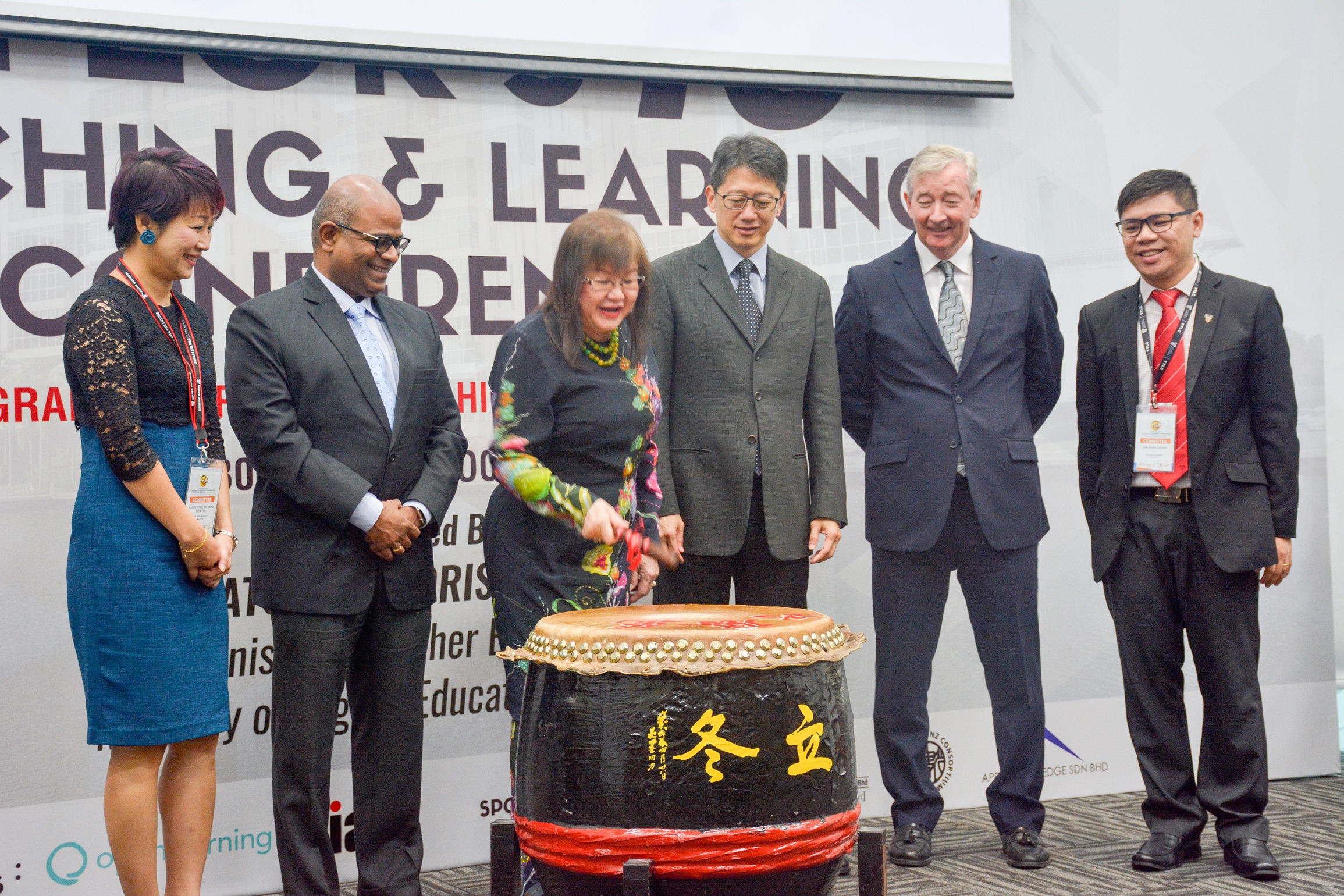Academicians Acquire New Methods to Redesign Higher Education at Taylor’s 10th Teaching and Learning Conference
Subang Jaya, 6 October 2017 – In the face of transforming economies and highly challenging 21st century workplaces, academicians from both public and private institutions recently convened at the Taylor’s 10th Teaching and Learning Conference (TTLC) to address the need to review existing teaching and learning experiences to produce graduates of the future, equipped with 21st century skills. The 16 Most Critical 21st Century Skills by World Economic Forum are grouped into three main categories; namely, foundational literacies, competencies and character qualities.
“The 21st century has witnessed rapid changes to the way we interact, do business, and live life as a whole. As such, our workforce needs to be ahead of the game with talents who are innovative and creative to take our economy forward. It is now, more than ever, that we must prepare our graduates to be future-ready and adaptable to the transformations around us,” said Deputy Minister of Higher Education, Datuk Dr Mary Yap Kain Ching, who delivered the keynote message.
“Today, all graduates face a world transformed by technology, in which the Internet, cloud computing, and social media create different opportunities and challenges for formal education systems. With the advancement of the Fourth Industrial Revolution, educators have to work diligently towards aligning the teaching and learning processes in order to support the desired outcomes of the Industry 4.0,” she said.
.jpg)
Presently, in order for companies to move away from reliance on low and mid-skilled labour, it is important that graduates are industry-ready upon graduation so that companies can move up the value chain by pursuing innovation. Looking ahead, economies need high quality graduates who are skilled to take the economy beyond its present state into the 21stcentury.
Sharing on the efforts of the ministry to redesign the local higher education, Datuk Dr Mary Yap Kain Ching explained that many initiatives were launched in the past year to answer issues of employability and future-proofing graduates. She noted that initiatives such as the iCGPA, 2u2i, MOOC, APEL, TVET and the Gap Year were all aimed at developing graduates who are holistic, possess critical thinking skills, creativity, design thinking, problem-solving abilities, and are adaptable to transformations of the 21st century.
“The success of the Malaysian Higher Education depends on each and every one of us, whether public or private institutions. Every programme that has been put into place requires the teamwork of different people, which is why we have collaborated with Taylor’s University this year to host the TTLC. In addition, we also need the support of our industry players to make the collaboration between industry and academia more seamless,” she urged.
At the same event, Taylor’s University Vice Chancellor and President, Professor Michael Driscoll, who also holds the record of being the longest serving Vice Chancellor in the United Kingdom said, “Higher education institutions must keep up with transformation in order to build a workforce that is ready to face a future of digitisation and technological innovation. It is crucial that we remain relevant to match emerging economies and the labour market. We must redesign higher education to focus on future works skills; skills that ensure our graduates can readily take on workplace tasks which have not yet been envisioned.”
“The workplace and its jobs are quickly being altered, and we will soon be only as good as the skills we possess. In light of changing needs in workplaces, the demand for individuals who are even more dynamic, competent and innovative, is ever more crucial to carry our economy forward,” added Professor Driscoll.
According to a 2016 Bank Negara Malaysia report, unemployment among youths with tertiary education sits at a higher percentage than youth without tertiary education. In addition, this trend of graduate unemployment is consistent in the region; proving a disparity between education systems and the types of jobs available in our rapidly evolving global economies.

“Higher education institutions are striving to answer some of the challenges of developing and designing cross-disciplinary curriculum that can produce graduates who are relevant, work-ready and agile; skills that will help them thrive in a highly competitive and challenging 21st century workplace. Taylor’s University is focused on holistic education that will equip our graduates in every aspect covering academic excellence, life skills, and emotional wellbeing,” said Professor Driscoll.
“The time to prepare for the future is now. Universities can no longer implement the same pedagogy with old mind-sets to tackle new issues. The role of universities in future-proofing our graduates must be taken on with a greater sense of urgency to ensure we are not left behind,” he said.
Every year, TTLC addresses current issues relevant to the higher education scene through forums and research presentations. This year’s conference touched on various themes revolving around future-proofing graduates including defining the graduate skill set for the future workforce; embedding employability skills into teaching, learning, curriculum and assessment; developing a holistic graduate; work-based learning; employer engagement and the practice-based curriculum. Building effective partnerships and relationships with industry; implementing effective university-wide graduate employability models and promoting entrepreneurialism were also covered.
The two-day conference was organised as a collaboration between Taylor’s University and the Ministry of Higher Education. A total of 70 research papers on topics relating to “The Future Ready Graduate” were presented at the conference while over 200 delegates were present to exchange their experiences and expertise. The conference also offered all attendees a chance to connect with academicians from Australia, Hong Kong and the United Kingdom as well as a few local industry players.





 +60173309581
+60173309581